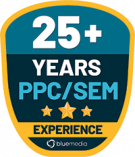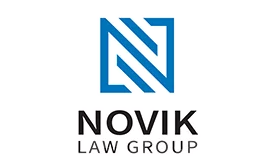- About
- Services
-
Professional SEO ServicesProfessional SEO Services
-
ChatGPT SEO / GEO SEOChatGPT SEO / GEO SEO
-
Amazon SEO ServicesAmazon SEO Services
-
Shopify SEO ServicesShopify SEO Services
-
SEO Content ServicesSEO Content Services
-
Enterprise SEO ServicesEnterprise SEO Services
-
GEO Targeted SEO ServicesGEO Targeted SEO Services
-
Local SEO ServicesLocal SEO Services
-
On Page SEO ServicesOn Page SEO Services
-
SEO Audit ServicesSEO Audit Services
-
White Label SEO ServicesWhite Label SEO Services
-
Professional SEM ServicesProfessional SEM Services
-
Google Ads ManagementGoogle Ads Management
-
Facebook Ads ManagementFacebook Ads Management
-
White Label Paid Search ServicesWhite Label Paid Search Services
-
Benefits of Google Ad SpecialistsBenefits of Google Ad Specialists
WEBSITE DEVELOPMENT
-
SEO-Optimized Website DesignSEO-Optimized Website Design
-
WordPress Website DevelopmentWordPress Website Development
-
Shopify Website DevelopmentShopify Website Development
-
E-Commerce Web Design ServicesE-Commerce Web Design Services
-
Website Migration ServicesWebsite Migration Services
-
- Results
- Industries
-
SEO Services for Small BusinessesSEO Services for Small Businesses
-
SEO Services for SaaSSEO Services for SaaS
-
SEO Services for ContractorsSEO Services for Contractors
-
SEO Services for Law FirmsSEO Services for Law Firms
-
SEO Services For DentistsSEO Services For Dentists
-
SEO for All IndustriesSEO for All Industries
-
- About
- Services
-
Professional SEO ServicesProfessional SEO Services
-
ChatGPT SEO / GEO SEOChatGPT SEO / GEO SEO
-
Amazon SEO ServicesAmazon SEO Services
-
Shopify SEO ServicesShopify SEO Services
-
SEO Content ServicesSEO Content Services
-
Enterprise SEO ServicesEnterprise SEO Services
-
GEO Targeted SEO ServicesGEO Targeted SEO Services
-
Local SEO ServicesLocal SEO Services
-
On Page SEO ServicesOn Page SEO Services
-
SEO Audit ServicesSEO Audit Services
-
White Label SEO ServicesWhite Label SEO Services
-
Professional SEM ServicesProfessional SEM Services
-
Google Ads ManagementGoogle Ads Management
-
Facebook Ads ManagementFacebook Ads Management
-
White Label Paid Search ServicesWhite Label Paid Search Services
-
Benefits of Google Ad SpecialistsBenefits of Google Ad Specialists
WEBSITE DEVELOPMENT
-
SEO-Optimized Website DesignSEO-Optimized Website Design
-
WordPress Website DevelopmentWordPress Website Development
-
Shopify Website DevelopmentShopify Website Development
-
E-Commerce Web Design ServicesE-Commerce Web Design Services
-
Website Migration ServicesWebsite Migration Services
-
- Results
- Industries
-
SEO Services for Small BusinessesSEO Services for Small Businesses
-
SEO Services for SaaSSEO Services for SaaS
-
SEO Services for ContractorsSEO Services for Contractors
-
SEO Services for Law FirmsSEO Services for Law Firms
-
SEO Services For DentistsSEO Services For Dentists
-
SEO for All IndustriesSEO for All Industries
-








































































